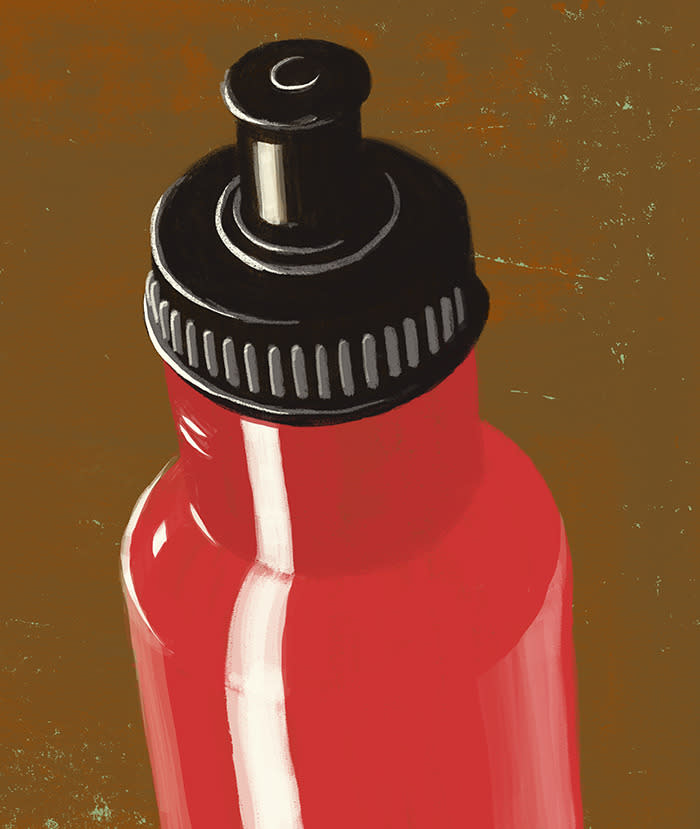This Common BPA Substitute Isn't Any Better Than BPA

Should you assume that if it’s plastic, it’s leaching chemicals? (Photo: Getty Images)
No doubt you’re well-versed on the potential harm from using products with bisphenol A (BPA), and you probably try to avoid the chemical whenever possible. But new research has found going BPA-free might not be that much better for you.
A new animal study published in the journal Endocrinology found that bisphenol S (BPS), a common replacement for BPA, can be just as harmful as BPA. While BPS has previously been linked to health risks, researchers specifically found that it can speed up embryonic development and disrupt the reproductive system.
For the study, researchers exposed zebrafish to either BPA or BPS at low levels, the equivalent to what would be found in polluted water. (Zebrafish were used because they’re neurologically similar to humans and have transparent embryos that make it easy for scientists to watch cell growth as it happens.)
Related: Even BPA-Free Products Could Be Harmful
What they discovered: The physiology of the zebrafish embryos changed in just a day. Specifically, the embryos developed at a much faster rate when they were exposed to BPA and BPS, leading to premature births.
Scientists also tracked the development of the fishes’ reproductive endocrine brain cells, which regulate puberty and fertility. They discovered that those that were exposed to BPA and BPS were overstimulated, which can lead to early puberty and fertility issues.
Related: BPA Still Widespread in Canned Foods
“I was surprised how similar the responses to BPS were compared to those of BPA,” study co-author Nancy Wayne, PhD, a professor of physiology at the University of California, Los Angeles David Geffen School of Medicine, tells Yahoo Health.
BPA has been linked to early puberty, obesity, and a rise in breast and prostate cancers. But BPS has increasingly been linked to issues as well. A study published in the Proceedings of the National Academy of Sciences found that zebra fish that were exposed to BPS early in life had a sharp increase in the number of neurons in the region of the brain associated with hyperactivity, which may lead to behavioral problems and issues with brain development.
Related: 5 Everyday Chemicals That Could Be Making You Fat
A study published in the journal Environmental Health Perspectives in 2013 also found that BPS has a similar affect on cells as BPA.
“There’s a growing body of research that has found that BPA’s replacements are harmful for the body,” Deborah Kurrasch, PhD, assistant professor in the Department of Medical Genetics at the University of Calgary, tells Yahoo Health.
Kurrasch stresses that just because a label says “BPA-free” doesn’t mean it’s harmless, but also notes that you can’t look on a label to see if a product is BPS-free. “That’s one of the frustrating components,” she says. “I always work under the assumption that if it’s plastic, it’s going to leach.”
Instead of reaching for plastic, Wayne recommends opting for glass and ceramic containers (as long as the glaze doesn’t contain lead), which you can find at most large grocery and department stores. Kurrasch says stainless steel products can also be a good option.
But Kurrasch says you shouldn’t panic if you drink out of a plastic water bottle here and there. “You do the best you can,” she says. “We’re surrounded by these things.”
Let’s keep in touch! Follow Yahoo Health on Facebook, Twitter, Instagram, and Pinterest.

